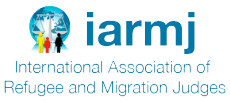Central to this application is the right to basic education enshrined, without any qualification, in section 29 of the Constitution. The application concerns children who have been precluded from unconditionally continuing to attend public schools unless they or their parents/guardians identify themselves by means of, inter alia, passports, identity documents, birth certificates or permits. Section 39 of the Immigration Act, however, provided that "No learning institution shall knowingly provide training of instruction to an illegal foreigner" and s 42 made it an offence for any person to "aid, abet, assist" an illegal foreigner in this regard. The respondents argued that sections 39 and 42 of the Immigration Act prohibited the provision of basic education to children whose presence in the country is illegal, and the applicants argued that these provisions are unconstitutional.
The applicants relied on (a) the right enshrined in section 29(1)(a) read with section 28(2)(a) of the Constitution which accorded “everyone” a basic right to education; (b) section 28(2) of the Constitution which provides that “[a] child’s best interests are of paramount importance in every matter concerning the child”; (c) the equality clause in s 9 of the Constitution and section 5 of the South African Schools Act which stated that “a public school must admit learners and serve their educational requirements without unfairly discriminating in any way”; and (d) the right to dignity under section 10 of the Constitution.
The court held that Sections 39 and 42 of the Immigration Act could be interpreted so as not to be in conflict with section 29(1)(a) of the Constitution. Children, including those who were undocumented and whose presence in the country was illegal, were entitled to the right under section 29(1) of the Constitution.
Undocumented children; education; right to basic education; Constitutional law; Bill of Rights; interpretation of statutes; illegal foreigners
In 2016, the Department of Education of the Eastern Cape Provincial Government issued a circular stating that children needed to be registered with their identity or passport numbers, failing which the Department would not transfer the budget for such learners. In practical terms, the consequences of the decision to stop funding undocumented children resulted in their exclusion from school and the exclusion of learners from being funded if they remained at school.
The application succeeded. The schools in question were directed to accept alternative proof of identity, such as an affidavit or sworn statement deposed to by the parent, care-giver or guardian, where a learner did not possess an ID document or passport, and directed not to exclude or remove any children on the basis that they have not produced such documents.
The court interpreted the provisions as being in harmony with the Constitution, as far as possible. The Immigration Act was promulgated at a time when the Constitution already referred to a right to basic education in section 29, and the Schools Act defined "learners" as any person receiving an education or obliged to receive education in terms of the Act - this definition did not draw any distinction between learners that are legally present in the country and those that were not. The court thus interpreted the Immigration Act’s reference to “learning institution” and “training or instructions” as not referring to the basic education that schools provide to children.
